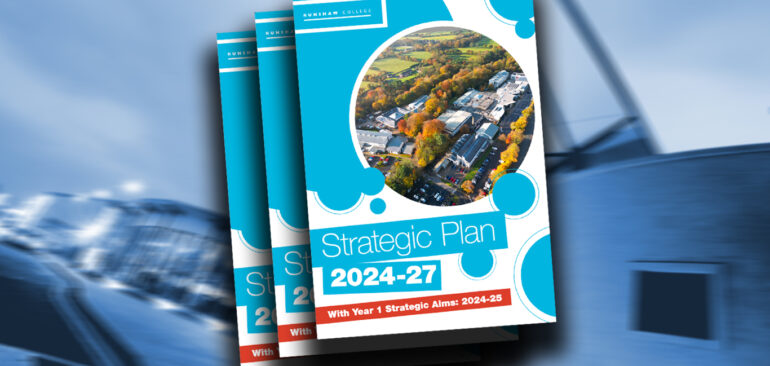Runshaw College is committed to making a positive contribution to the global challenges of climate change, sustainable development, social value and governance.
The College aims to meet the government target of reducing direct emissions from its buildings by 50% and 75% by 2032 and 2037 respectively (against a 2017 baseline), and to reach net zero by 2050. Further details of specific goals and objectives can be found in our Net Zero, ESG and Sustainable Development Plan. *Environment, Social Value and Governance
Around our Campus
We take care to limit our environmental impact and make best use of natural resources by reducing our carbon footprint, improving resource efficiencies through recycling, setting energy targets, raising awareness and monitoring impact. We educate and support staff and students to make lasting changes to behaviour and working practices to proactively improve the local and wider environment and create a positive future. Below are just a few resources in place here at Runshaw.
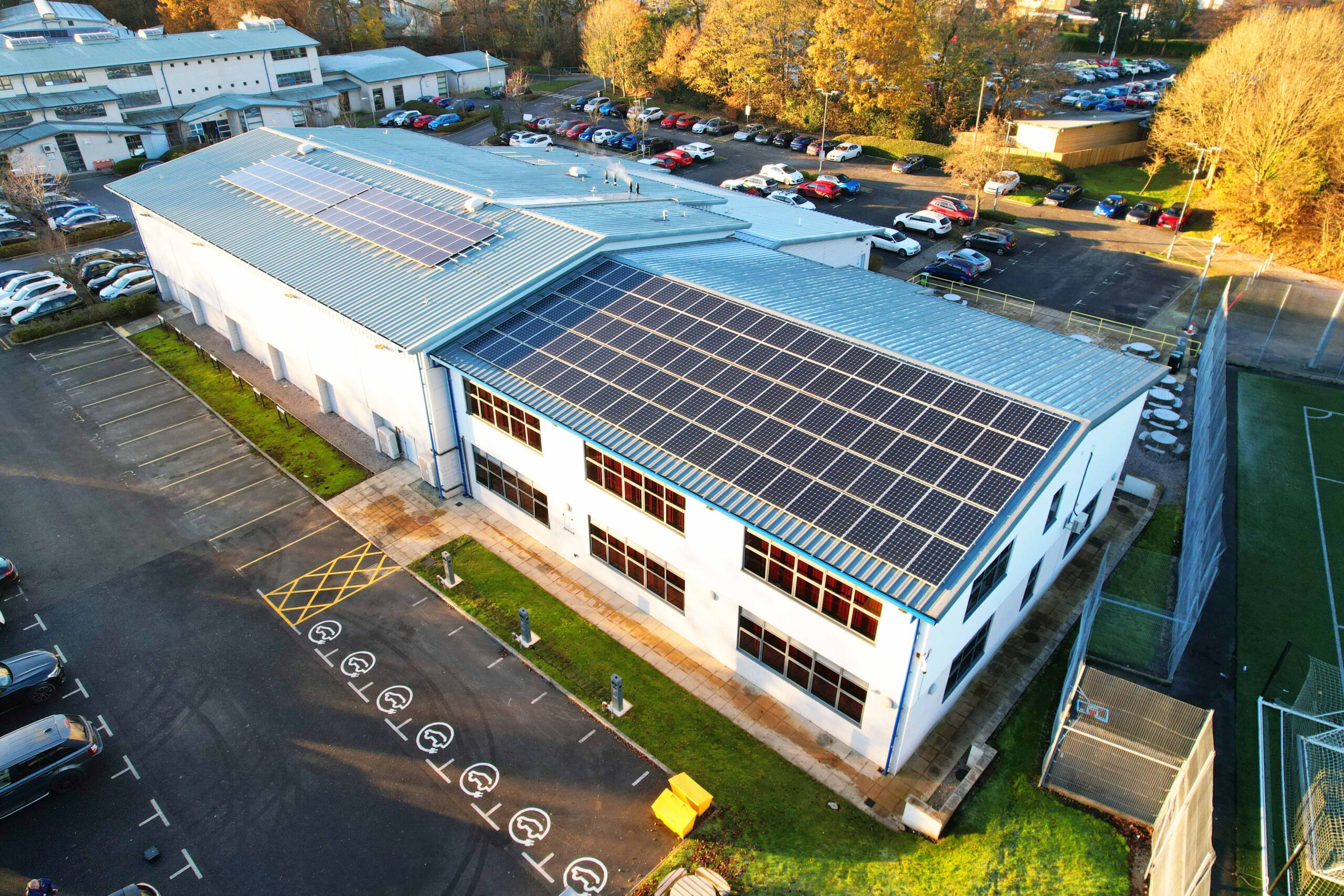
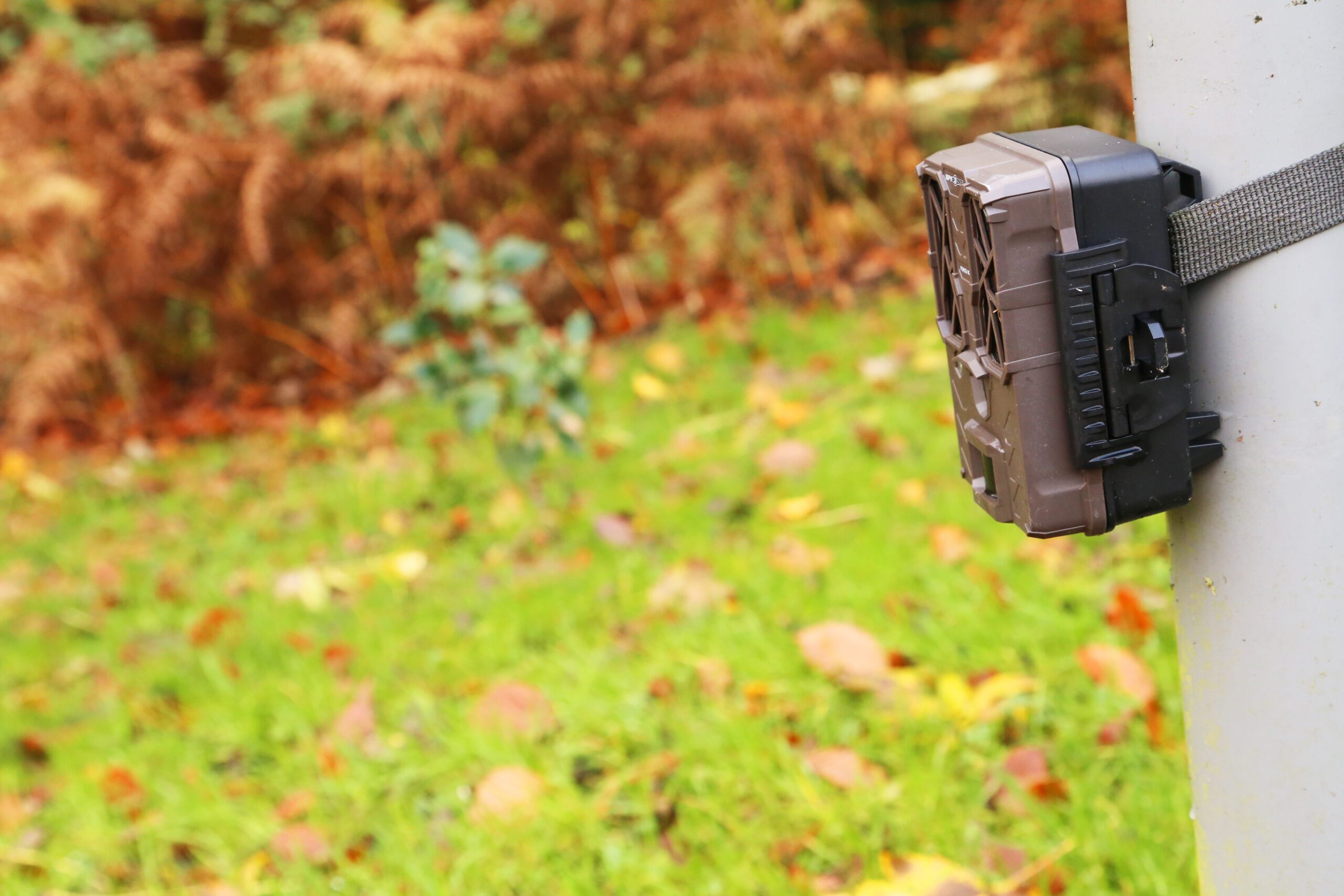
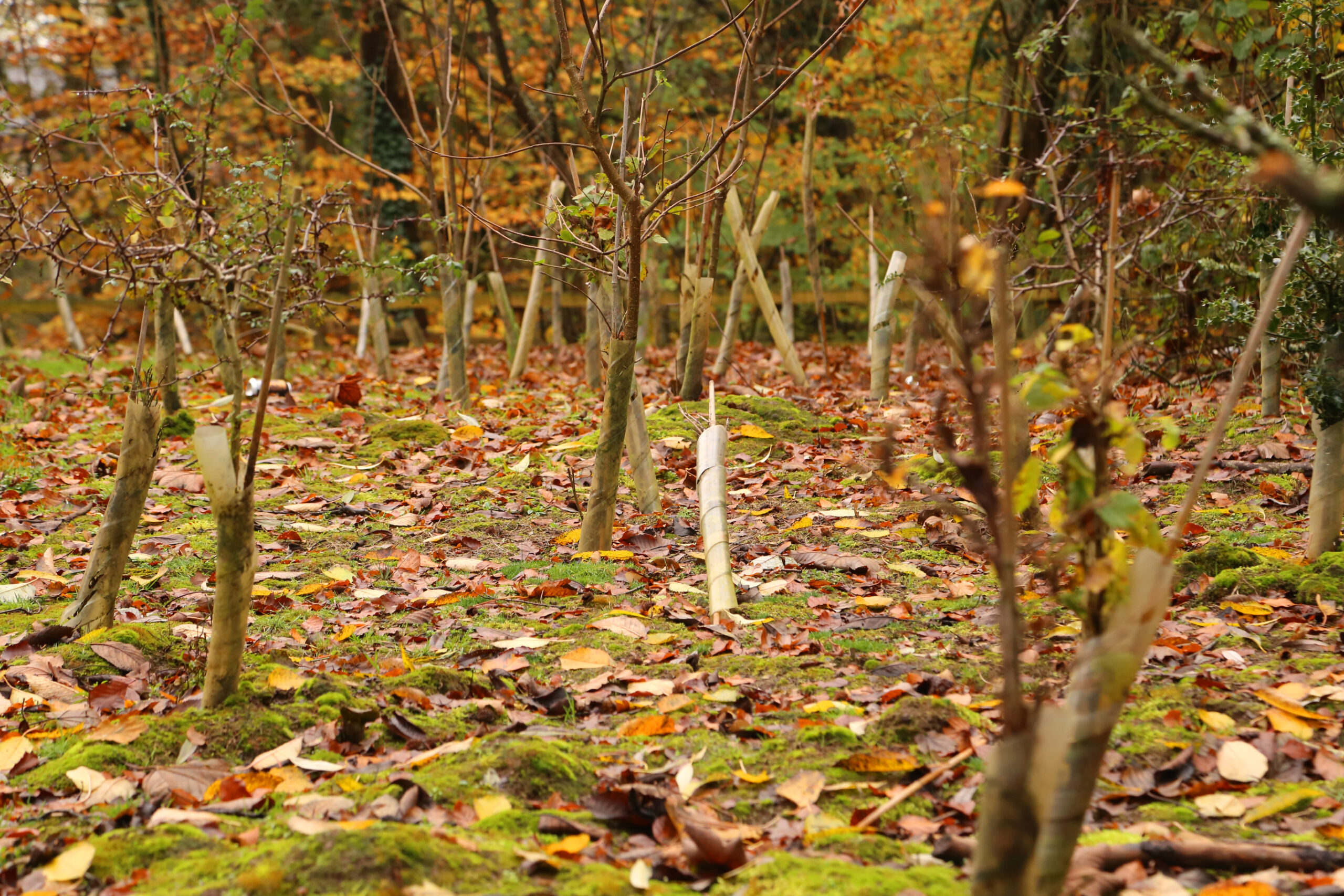
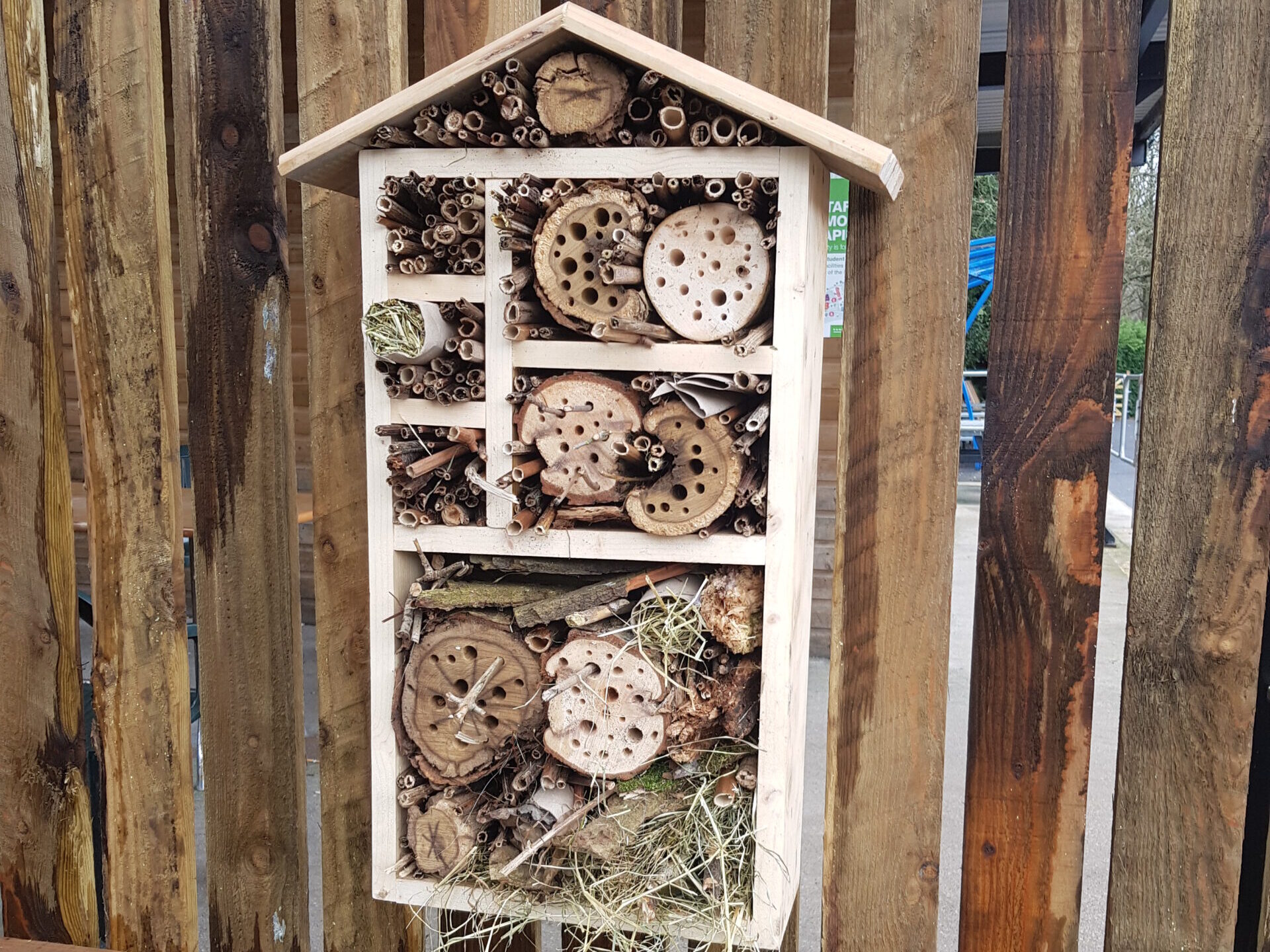
Wildlife cameras – biodiversity
Our campus is home to a diverse range of species including foxes, badgers, deer, squirrels and birds – we are working with our eco-society to actively monitor our biodiversity to support the growth of these populations.
Refillable stations for water
Refillable water stations are available across college and students are encouraged to bring their own water bottles. Water is also sold in aluminium cans to reduce single use plastic on site. Compostable coffee cups and recyclable aluminium drinking cans are available in all dining areas.
Solar Panels
Five of our buildings, including the new Buttermere building, are now fitted with solar panels. There is a plan to looking at expanding our provision over the next 12 months.
EV Chargers
Six new electric vehicle charging points were installed over summer 2022 to support staff and visitors in adopting electric vehicles. These can be found in Car Park C at the back of Hawkshead.
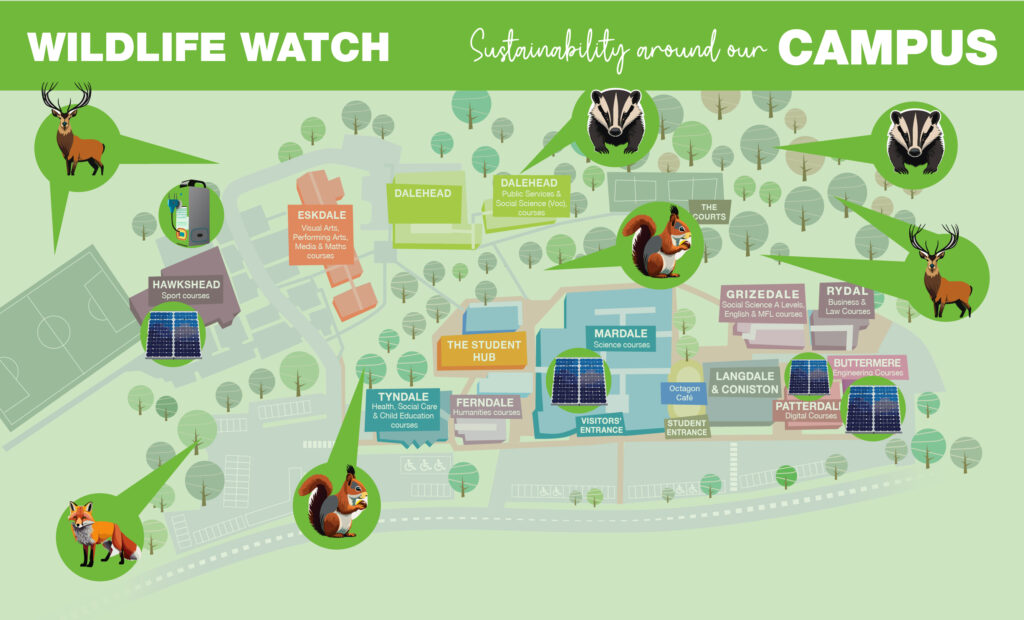
Getting involved
Staff Sustainability Forum
In order to successfully carry out our Strategic Plan, our newly formed sustainability forum will be working to implement the principles and initiatives out lined in the Climate Action Roadmap for Further Education Colleges. These initiatives include monitoring and reducing our carbon footprint, increasing biodiversity on campus, and further increasing the number of carbon literate staff and students.
Sustainability Committee – Student Council
The Sustainability Committee has been created as part of the Student Council to tackle issues and help to embed sustainability within our curriculum, campus and culture. Engaging with crucial topics that will affect everyone’s future will allow students to develop the skills needed to become catalysts for positive change.
Woodland Trust Area & Fire Pit
Our Outdoor Learning Area was built in partnership with the Woodland Trust as part of our enrichment provision.
Strong evidence shows that engagement with outdoor natural environments is beneficial for mental health and wellbeing: through a restorative effect, positive social contact and opportunities for physical activity.
Runshaw Eco-society
We are currently working through the seven step programme in order to apply for an Eco-Schools green flag award. This programme will empower our students to make a difference in college and the local community. In order for us to achieve the award we have to connect activities that we complete in and around college to three or more of the ten eco-schools topics. These topics use directed themes that can prompt young people to consider environmental changes that they can make in college and in their everyday lives. The three topics we are focusing on are biodiversity, water and marine. The society members meet Wednesday mornings at 9am – new members are very welcome, drop by Student Services and chat to our Enrichment team for more information.
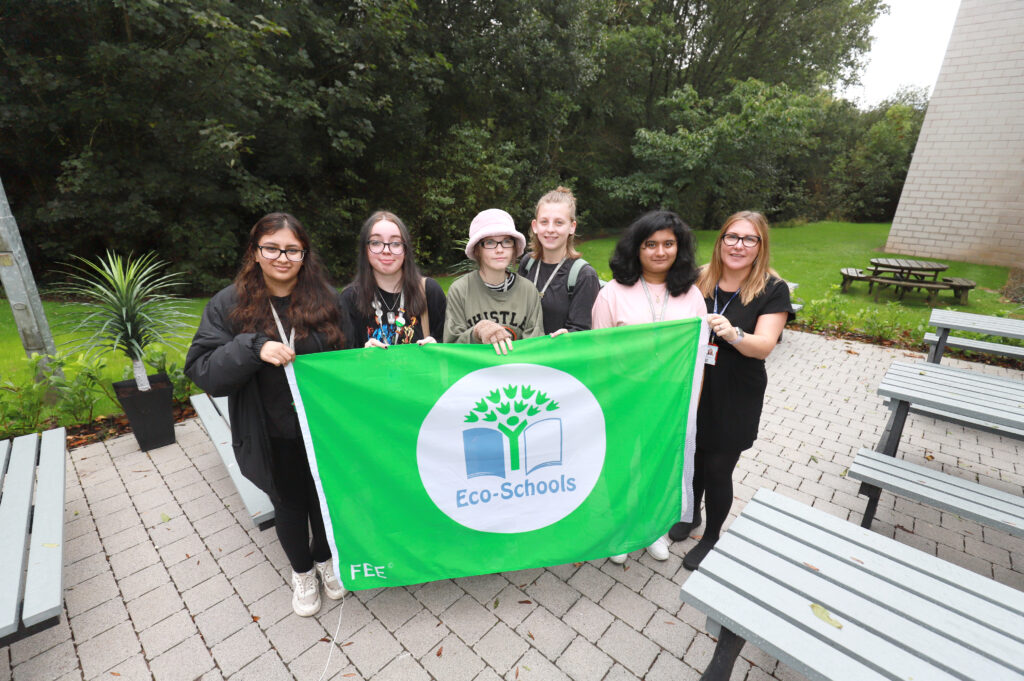
Runshaw Dining – Sustainability Corner
This year we have stepped away from selling plastic water bottles over the counter and we now sell plastic free “Water” bottles that are designed to be refillable via the water stations around campus offering chilled and filtered tap water. You may have seen these pink and blue bottles around. So far this term, we have sold 1548 of them which is a great step forward in moving away from plastic to a bottle made from sugarcane instead. A positive alternative to single use plastic bottles that pre pandemic added up to 230,000 bottles being thrown away every year.
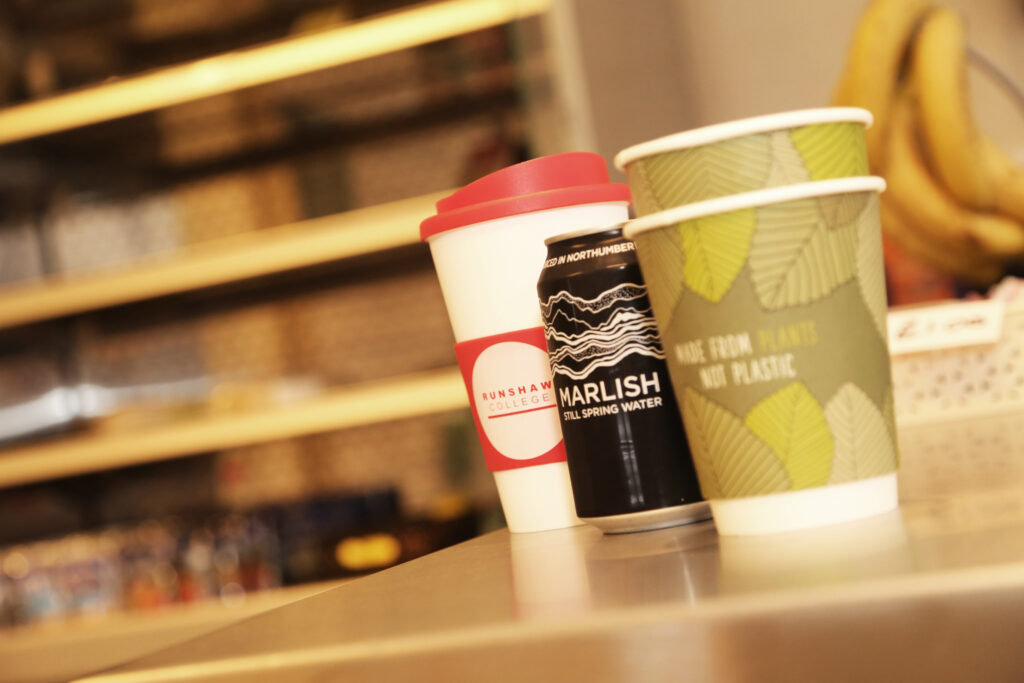
Local Suppliers – we are also looking at using more local suppliers that are based in the northwest, supporting local business and reducing food miles. We have analysed our spend last year and 52% of our purchasing was to northwest suppliers. This is something we are focusing on now to increase as long as these suppliers and giving the College the best value for money.
Disposable paper cups – this year we have taken another step forward to nudge customers to use their own reusable cups for hot and cold drinks through our Starbucks outlets offering a 50p saving every time you use your own cup. Customers can buy a Starbucks re-usable cup or bring their own and still make the saving. These two new initiatives tap into Gen Z’s desire to “spend to save” (spaving), whilst also helping the environment.
Vegan food – we sell a range of vegan food including hot pasties and sausage rolls from Nourish & Flourish in Mardale, Jacket potatoes from the Deli Bar, our incredible falafel wrap from Nourish & Flouish, with your choice of sauce and a selection of vegan sandwiches and salads. Vegan food has a super low carbon footprint compared to other foods and the quality and flavour of vegan food now has improved over the years considerably.

WWF Runshaw Virtual Wildlife Park
Runshaw’s staff and student sustainability forums have raised funds to adopt a number of animals and we will be adopting more over the coming year – click below to see our progress so far.
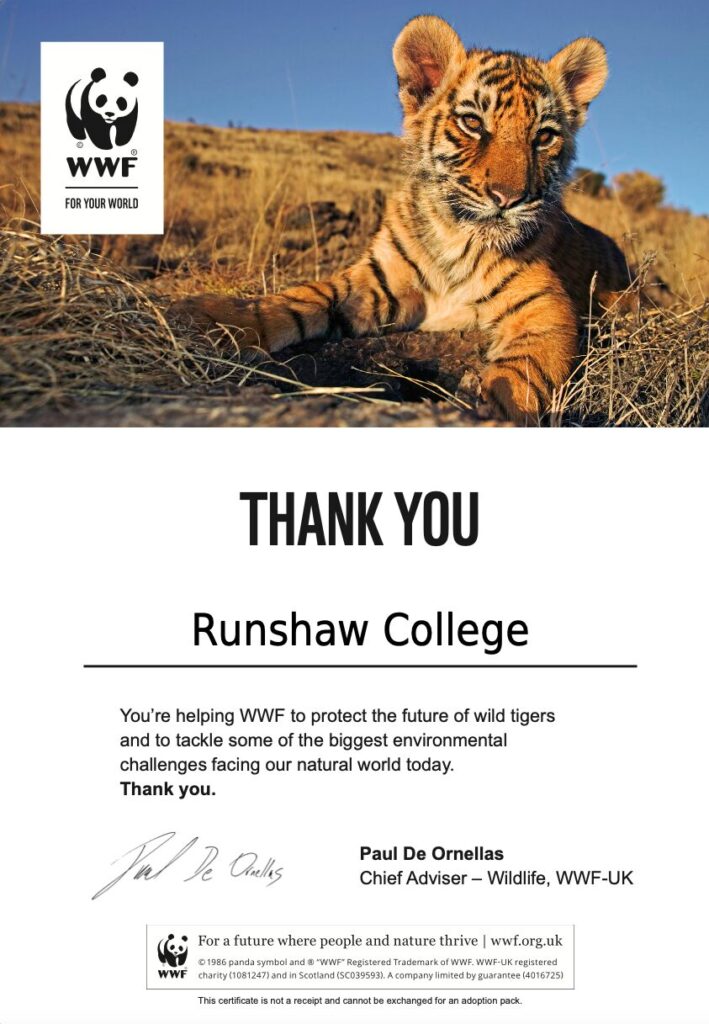
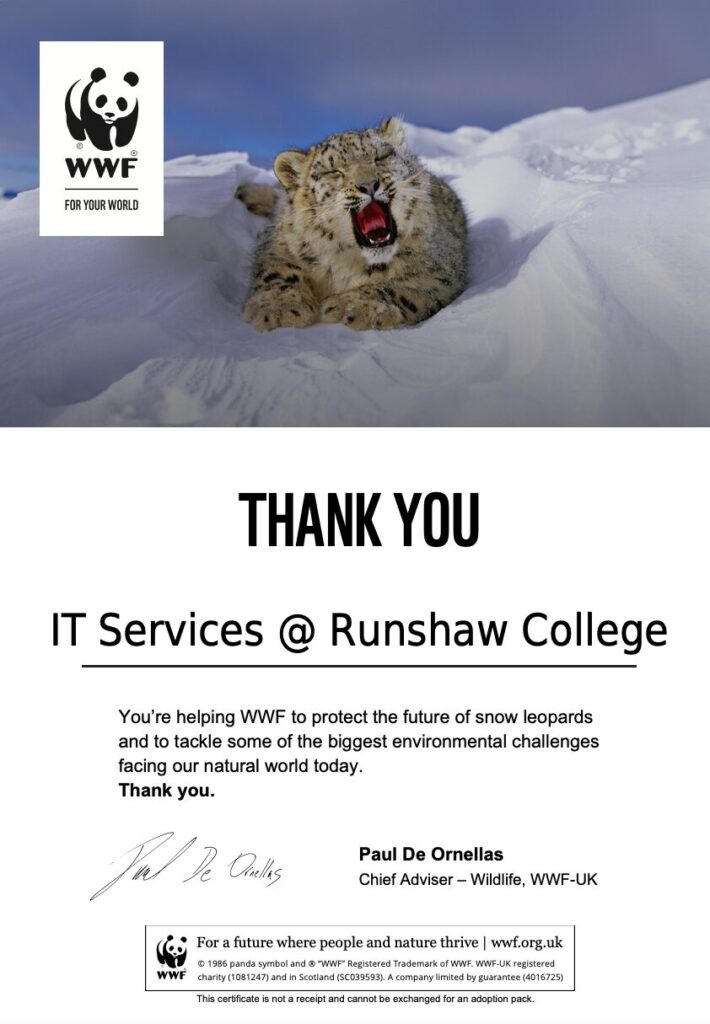
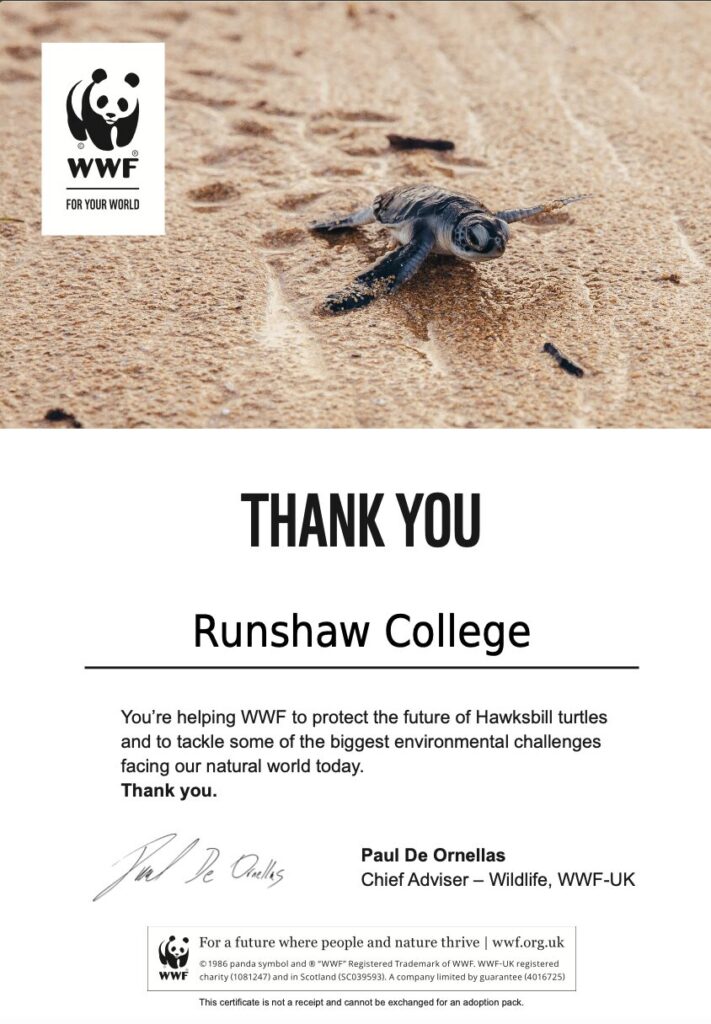
A Sustainable Curriculum for Lancashire – In partnership with The Lancashire Colleges.
A Sustainable Curriculum for Lancashire is led by Runshaw, working with Burnley College, Lancaster & Morecambe College, Myerscough College and Preston College.
Lancashire’s Colleges will work together to audit the FE curriculum, assessing the extent to which sustainable development topics are included within different courses as relevant to the sector-subject area. This will support our objective to have a ‘sustainable curriculum’ across Lancashire’s Colleges as per the FE Climate Action Roadmap. The SDF funding will be used to pump-prime what will be a much larger and significant piece of work which will see the colleges collaborating in a brand-new way, ensuring a pan-Lancashire and more efficient response to this significant challenge.
Businesses and industry experts will support the project, helping to inform the audit and the emerging curriculum while students will be engaged, helping colleges to understand the topics which are of most interest to them. Following the audit, the colleges will work together to identify where there are existing courses or content which can be built into the curriculum and/or modified to suit a particular sector or subject area and will modify or develop new courses where there are gaps.
